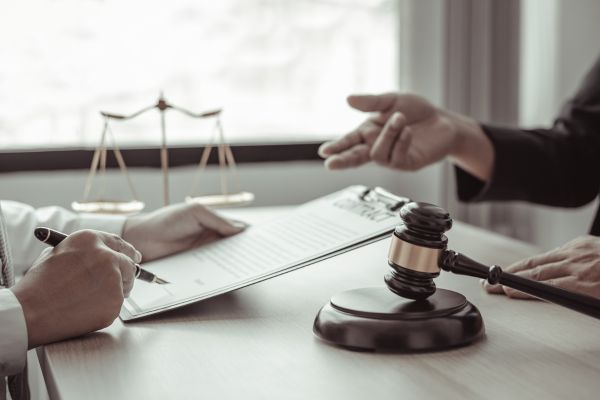Introduction
Confidentiality, in legal practice, is a foundational stone, as it establishes a relation of trust and confidence between the client and lawyer. However, this privilege is not unbridled, it comes with certain exceptions to give way to greater ethical and legal obligations, especially in matters related to public welfare.
Through an in-depth analysis of legal provisions in our country, including the Indian Evidence Act, 1872, and Bar Council Rules, 1975, this discussion highlights how courts balance confidentiality with justice. The blog also delves into real-world ethical dilemmas faced by lawyers when their duty to their clients conflicts with their duty to the court and society.[1] Furthermore, it examines global trends in legal ethics, drawing lessons from jurisdictions like the United States, the United Kingdom, and the European Union.
This blog deals with Indian along with global aspects of the ethical dilemma in attorney-client relations while considering instances where said confidentiality must be waivered in the interest of justice, national security, and public interest.
Ethical Dilemma: Duty towards Client v. Duty towards Court
As lawyers, we must maintain a perfect balance, between our duty and justice, to ensure no harm. The attorney-client relationship is fiduciary ensuring the confidentiality of clients is maintained without the fear of disclosure of personal information. But this privilege isn’t absolute. As it takes a turn when the client’s information affects the society and is a matter of public interest, the same requires attorneys to disclose certain information about their clients. This leaves the attorneys with the ethical dilemma, as to perform their duty toward their clients, the courts; their friends, and society at large.
Taking in view certain examples, if a client has committed a murder and he/she confesses the same to his attorney, then it’s their duty to not disclose the same and provide the necessary protection and legal help within the purview of law if such action of the clients proposes an imminent threat to public safety, then it’s the attorneys are often compelled to disclose the confidential information to prevent greater harm.
Another example could be if a client confirms his involvement in some financial fraud or white-collar crime to their attorney then the attorney is duty-bound to maintain confidentiality. But if the degree of wrong done is extreme and capable of impacting the society, the economy, and the lives of many people like that of the Satyam scandal, or Harshad Mehta case then the attorneys are compelled to disclose such acts as they pose an imminent threat to public safety and security.
These conflicts of duty and justice are perfect examples of the ethical dilemma faced by attorneys. They further add to the complexity of the attorney challenges, requiring a balance between duty towards the client and the duty towards court and justice.
Legal Framework in India
In India, the principle of confidentiality in the attorney-client relationship is incorporated in several statutory provisions. The Indian Evidence Act, 1872, particularly s.126[2] and s.129[3], establishes this principle by ensuring that conversations between a lawyer and their client remain protected. Section 126[4] explicitly prohibits lawyers from disclosing any information shared by a client during professional engagement unless the client delivers express consent.
Although the said section does not exclude all kinds of information, it comes with the exception that any such information indicative of any fraud or crime must be disclosed within as well as outside the employment of the advocate. The exception under s.126 of the Evidence Act[5] makes it clear that confidentiality cannot be used as a shield for illegal acts. If a client communicates with his/her advocate regarding an ongoing or planned illegal activity, the privilege stops existing. Courts in India have also reaffirmed this principle, stating that the protection of confidentiality must be balanced against the need for transparency in cases involving public welfare.
Section 129[6] further strengthens this protection by preventing a client from being compelled to reveal confidential discussions with their legal counsel. This confidentiality is not merely a privilege but a fundamental duty imposed on lawyers and a right enshrined to the parties in a case.
The Bar Council of India Rules[7], 1975, reinforces this duty, emphasizing that lawyers must maintain secrecy concerning any information obtained in the course of their professional capacity. However, this obligation is not absolute and must sometimes give way to broader concerns of justice and public interest.
The Supreme Court of India, in various landmark judgments, namely, R. M. Malkani v. State of Maharashtra[8], 1973 has emphasized that while confidentiality is an essential element in the effective functioning of a fair and just legal system, it cannot be allowed to obstruct justice. In this case, the court had allowed the admissibility of the defendant’s acceptance of a call recording where the defendant had confessed to his accusations. This evolving legal landscape highlights the delicate balance between maintaining professional secrecy and upholding the rule of law.
The Public Interest Exception: When Does Confidentiality Yield?
The attorney-client privilege is one of the basics of legal practice, assuring that clients have the freedom to talk with their lawyers without the need for secrecy. Yet, this does have some exceptions.
One of the most notable exceptions is the crime-fraud exception, stating that this privilege does not apply if a client seeks a lawyer to conduct or cover up the fraud.
In Raja Narayanlal Bansilal v. Maneck Phiroz Mistry (1961)[9], the Supreme Court of India declared that privilege cannot be used to defend against illegal behaviour. Similarly, in Ram Jethmalani v. Union of India (2011)[10], the Court reaffirmed that confidentiality should not be utilized to conceal facts about black money and corruption if the public interest is compromised. Another exception includes public safety concerns and national security. Lawyers ought to disclose the information of imminent danger.
In State of Punjab v. Sodhi Sukhdev Singh (1961)[11], the Supreme Court recognized that in cases where public welfare or state security is threatened, individual privileges can be superseded. This is consistent with international jurisprudence, in that legal privilege should not allow for conduct that undermines the stability of society. Additionally, the courts have held that professional privilege cannot impede justice. In Sahara India Real Estate Corp. Ltd. v. SEBI (2012)[12], the Supreme Court emphasized maintaining the balance of confidentiality and transparency concerning the financial interest of the public.
Indian courts have preserved the inviolability of attorney-client privilege, they have also made it clear that public interest is a circumscribing principle. Legal secrecy is not intended to enable wrongdoing or threaten national security. Thus, in fraud, imminent injury, or hindrance of justice, courts have adopted a pragmatic stand in support of disclosure.
The developing jurisprudence is a response to the necessity of finding a harmonious balance between individual rights and the public good. Therefore, the public interest exception is necessary to prevent legal confidentiality from being used as an instrument of injustice.
Global Trends & Reforms- Lessons For India
Across the globe, different jurisdictions follow various legislative practices for attorney-client confidentiality and public interest. In the United States rules and regulations have incorporated the answers to these issues and provided recourse for attorneys to adopt and conform to. American Bar Association has provided The Model Rules of Professional Conduct[13] which permit and necessitate attorneys to disclose confidential information to prevent bodily harm, death, and harm to society. Even the Sarbanes-Oxley Act[14] has included the necessary disclosure of any financial fraud within corporations by the lawyers.
Further, the practices adopted by the United Kingdom are also notable. Confidentiality can be overridden in cases of violation of human rights under The Human Rights Act, of 1998[15]. Also, attorneys must fulfill their duty towards the courts when clients are involved in financial crimes, then attorneys do have the right to override the confidentiality of their clients according to The Legal Services Act of 2007[16] and The Money Laundering Regulations of 2007[17].
Also, the European Union has highlighted the limitation of attorney-client privilege in cases where public interest necessitates the same and supersedes the client’s right to maintain their confidentiality.
These, legislation, of the three developed nations across the Globe brings multitudinous lessons for India, the necessity for a clearer legislative framework, Judicial oversight, and regulatory compliance aligning legal ethics with Global standards.
Conclusion
An attorney-client relationship has a thin-line difference and is a bedrock of professional ethics in the field of law. It is necessary to understand that this shield can’t be used against the public interest and national security. This term can’t be always understood in an absolute sense as certain matters require public interest disclosure as has been established in the above discussion. Attorney-client privilege is protected under sections of the Indian Evidence Act, but not without exceptions. However, a nuanced approach must be adopted to ensure the delicate balance between the two and maintain transparency without undermining the professional ethics in the field of advocacy.
[1] Parry EA, The Seven Lamps of Advocacy (FB and C Ltd 2018).
[2] The Indian Evidence Act 1872, s 126.
[3] The Indian Evidence Act 1872, s 129.
[4] The Indian Evidence Act 1872, s 126.
[5] The Indian Evidence Act 1872, s 126.
[6] The Indian Evidence Act, 1872, § 129.
[7] Bar Council of India Rules, 1975.
[8] R.M Malkani v State of Maharashtra (1973) 1 SCC 471; AIR 1973 SC 157.
[9] Raja Narayanlal Bansilal v Maneck Phiroz Mistry (1961) 1 SCR 417; AIR 1961 SC 29.
[10] Ram Jethmalani v Union of India (2011) 8 SCC 1; AIR 2011 SC 2651.
[11] State of Punjab v Sodhi Sukhdev Singh (1961) 2 SCR 371; AIR 1961 SC 493.
[12] Sahara India Real Estate Corp Ltd v SEBI (2012) 10 SCC 603; AIR 2012 SC 3829.
[13] American Bar Association, Model Rules of Professional Conduct (2023) https://www.americanbar.org/groups/professional_responsibility/publications/model_rules_of_professional_conduct/model_rules_of_professional_conduct_table_of_contents/ accessed [25-02-25].
[14] Sarbanes-Oxley Act of 2002, 15 USC §§ 7201–7266 (2002).
[15] Human Rights Act 1998 (UK) c 42.
[16] Legal Services Act 2007 (UK) c 29.
[17] Money Laundering Regulations 2007 (SI 2007/2157).
Authors: Shrishti Jain and Swara Mehta are BComLLB (Hons.) students at the Institute of Law, Nirma University.






